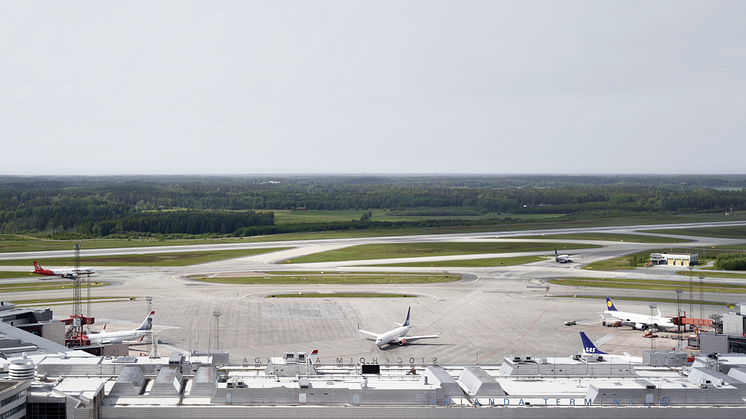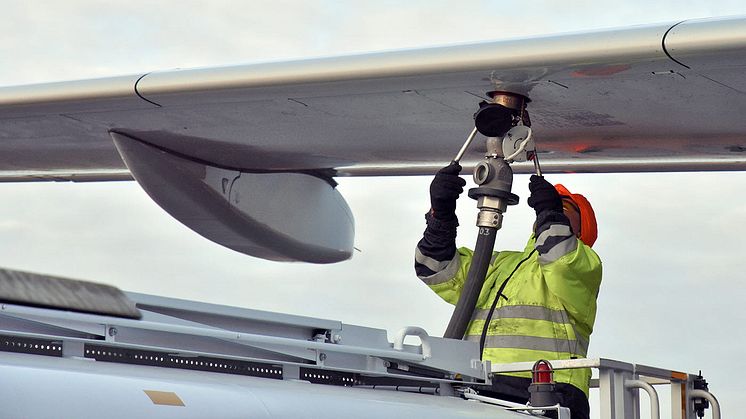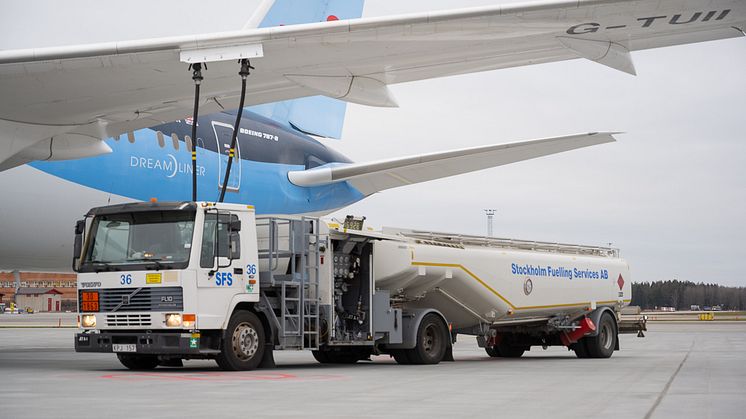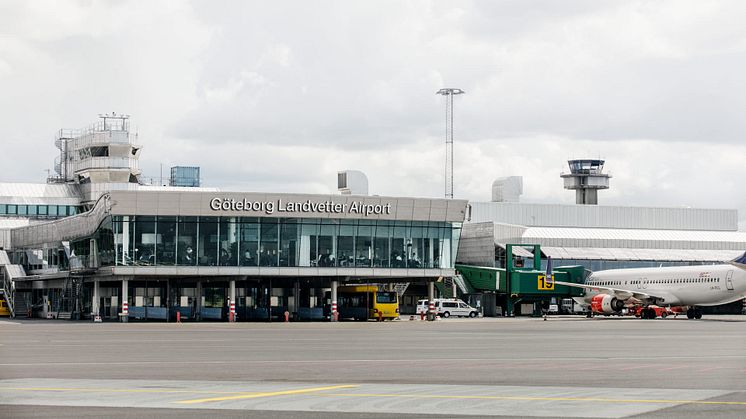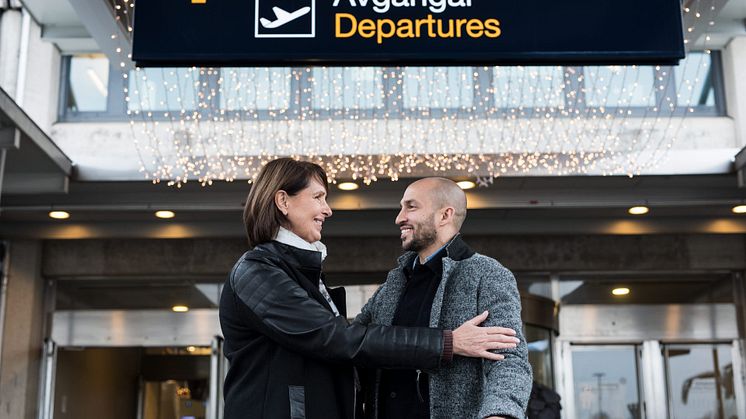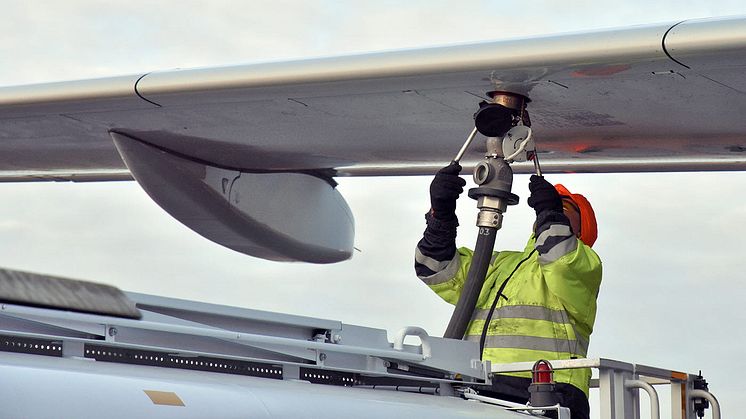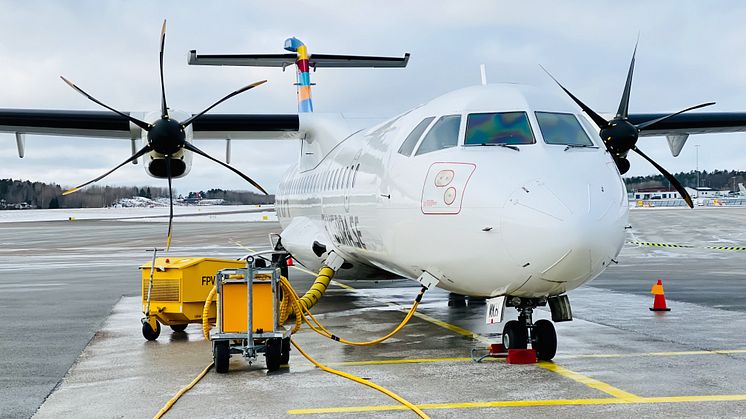
Press release -
Göteborg Landvetter Airport welcomes the first commercial air route based on 50 per cent sustainable aviation fuel
As an airport operator, Swedavia works to promote the switch to sustainable aviation fuel (SAF), with its goal to have five per cent of all fuel used for refuelling at Swedish airports be fossil-free by 2025. There will now be a new opportunity to fly with a significantly lower carbon footprint when the first route based on 50 per cent SAF is launched. Braathens Regional Airlines (BRA) will fly twice weekly between Göteborg Landvetter Airport and Lyon-Saint Exupéry Airport in France. The new route will thus be the most sustainable fuel-powered commercial route in the world.
“It is an important step towards fossil-free aviation that Volvo Group is now taking together with BRA, and it is really gratifying that Göteborg Landvetter Airport has the privilege to welcome that here. A blend of 50 per cent sustainable biofuel enables people to travel on business and at the same time reduce their carbon footprint. Through various programs and collaborations, Swedavia continues to encourage airlines to reduce dependence on fossil fuels and switch to sustainable biofuels” says Anna Strömwall, airport director at Swedavia Göteborg Landvetter Airport.
Swedavia wants the travel of the future to be sustainable. The Fossil-Free Sweden initiative, to which we adhere, includes the goal to have domestic air transport be completely fossil-free by 2030. For international air transport, all aircraft that take off from Swedavia’s airports are to be fossil-free by 2045.
“BRA has decided together with Volvo Group to fly using a 50 per cent blend of sustainable aviation fuel, which is the highest possible blend allowed today for commercial aviation. There is now discussion in the EU of a mandatory SAF quota in aviation. The mandate is expected to be between 38 and 54 per cent by 2045. On this route, we will achieve a reduction in carbon dioxide emissions of at least 40 per cent from day one. We hope that this is only the beginning and that, together with our corporate customers, we will find many routes with similar solutions for the transition to more sustainable air travel using biofuel,” says Martin Erkenborn, Chief Commercial Officer at BRA.
“We have a responsibility to future generations to make the transition to a more sustainable future. We hope to be able to inspire other companies to do the same thing and to fly using a maximum percentage of sustainable biofuel. We need to ensure that our employees at Volvo Group can work efficiently and meet others, so flying is unavoidable. As a result, through our partnership with BRA, we will be able to achieve this in a more responsible way. This is just one example of the value-creating partnerships that we set up as a company – throughout the ecosystem – to help achieve our climate goals,” says Andrea Fuder, Chief Purchasing Officer for Volvo Group.
Through increased use of biofuel, Swedavia strives for aviation to have the smallest possible environmental impact. Biofuel contributes to a reduction in fossil carbon dioxide emissions by up to 80 percent. Refueling with renewable biofuel thus creates continued conditions for more sustainable aviation.
Topics
Categories
The Swedavia Group owns, operates and develops ten airports across Sweden. Our role is to create the access Sweden needs to facilitate travel, business and meetings. Safe, satisfied passengers are the foundation of Swedavia’s business. Swedavia is a world leader in developing airports with the least possible environmental impact. In 2021, the Group had annual revenue of about 2.7 billion Swedish kronor and nearly 2,300 employees.



